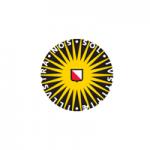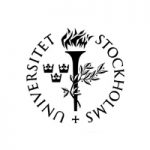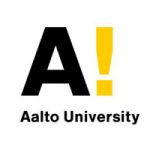项目介绍
The Department of Earth Sciences is seeking an enthusiastic candidate for a PhD project that aims to reconstruct island environments over millions of years to understand differences in biodiversity on different islands across the globe.
Your job
Since the days of Darwin and Wallace, islands have played a crucial role in the development of theories and hypothesis on the origin and evolution of species. Islands, being isolated, discrete, and numerous, provide a suite of natural laboratories that can be used as simplified model systems of the natural world. Island biogeography, the field of study of the geographic distribution of life’s diversity, specifically on islands, has traditionally been occupied by biologists. In the classical Theory of Islands Biogeography, which focuses on volcanic hotspot islands, MacArthur & Wilson (1967) postulate that insular species richness is correlated with island size and isolation from the continent. Inspiring many decades of research, this theory – one of the most cited theories in biology – has proven to be a powerful framework for understanding the ecological processes acting on populations of species on islands. However, this theory does not take evolutionary time into account, nor does it acknowledge that island environments and their biota are dynamic through time.
In recent years, it has been recognised that island biodiversity does not only depend on present day variables such as area and isolation, but that the geological history of islands plays a key role as well. In particular, island biodiversity is thought to vary throughout the lifespan of an island, with immigration, speciation and extinction rates varying over the buildup (by volcanic activity) and subsequent collapse (by erosion) of the island. This makes island age a key parameter. However, determining such an age is complex, and requires detailed mapping and dating of all volcanic rock units on an island, whereby the age of the oldest volcanic rocks is then interpreted to reflect island age. Such data is available for a few, very well studied hotspot islands, such as the islands of Hawaii and the Canary Islands. However, even if such data is available, the age of the oldest mapped volcanic rock will only provide a minimum age of the island, as older volcanic units may be unexposed or buried beneath younger volcanic units.
Moreover, it has been recognised that different island types (hotspot, but also for example subduction-related volcanic arc, rifted continental fragments, or continental shelf islands) have very different geological histories, very different starting points for life (barren vs. populated) and very different isolation histories (with for example on and off connectivity to the mainland during ice ages for continental shelf islands). Approaching this topic from a geological perspective and integrating these complexities into island biogeography theory is a major next step in this field.
The aim of this project is to explain the differences in biodiversity (species richness and composition of species assemblages) on different islands across the globe, to understand how biodiversity is shaped, over millions of years, by Earth’s environment and changes therein. Studying islands and insular biodiversity enables comparing different natural laboratories, with islands of different ages and with different types of dynamic environments leading to different types of biodiversity. As such, patterns and trends may be discerned regarding the co-evolution of Earth and life.
The objectives of this PhD project are the following:
- Dating volcanic islands
In this project, we will test a novel method for dating volcanic islands: through zircon dating of beach sands. Ages of zircon grains in beach sands are expected to provide constraints on the moment of island emergence, and, in the case of an inactive volcano, when volcanic activity ended. This record is expected to be more complete than what can be extracted from volcanic rocks that are currently exposed on an island, as older volcanic units may be buried or otherwise unexposed. We will first collect data from well-studied islands from which ages are known, and when proven successful, use this method to date more volcanic (hotspot, and potentially also arc) islands. Fieldwork locations are to be determined, but will likely include the Canary islands and Hawaii.
- Compiling island parameters
- build a database of islands, whereby the islands are subdivided into categories that are based on geological characteristics, but that are relevant for biology.
- compile published and newly determined island ages, including uncertainties.
- analyse the differences between the types of islands in terms of age, elevation, topography and size.
- develop generalised models of geological island evolution (“island ontogeny”) for the different island types, describing size, isolation, elevation, and topography through time.
- Analysing biodiversity metrics
- Compile data for various biodiversity metrics (species richness, phylogenetic diversity, phylogenetic endemism, paleo/neo-endemism) for a subset of selected islands.
- Analyse biodiversity metrics in relation to island type, island age, and island ontogeny.
You are expected to publish your results in peer-reviewed academic journals as Open Science contributions. A personalised training programme will be set up, reflecting your training needs and career objectives. About 20% of your time will be dedicated to this training component, which includes training on the job in assisting in the Bachelor’s and Master’s programmes of the Department at Utrecht University.
Your qualities
As the ideal candidate, you have an interdisciplinary mindset and are not afraid to branch out into new fields, learn new skills, and communicate with multiple different communities of researchers. Furthermore, you have:
- a Master’s degree in Earth Sciences (geology, geophysics, geomorphology, volcanology, or a related field), ultimately obtained at the start of the position;
- affinity with, or interest in, biodiversity/biogeography;
- enthousiasm for (and the ability to perform) geological fieldwork and the organisation thereof;
- excellent skills in writing and speaking English (C1 level).
If you already have a PhD degree, unfortunately, we cannot consider you for this position.
Our offer
We offer:
- a position for one year, with an extension to a total of four years upon a successful assessment in the first year, and with the specific intent that it results in a doctorate within this period;
- a working week of 36 hours and a gross monthly salary between € 2.770,- and € 3.539,- in the case of full-time employment (salary scale P under the Collective Labour Agreement for Dutch Universities (CAO NU));
- 8% holiday pay and 8.3% year-end bonus;
- a pension scheme, partially paid parental leave and flexible terms of employment based on the CAO NU.
In addition to the terms of employment external link laid down in the CAO NU, Utrecht University has a number of schemes and facilities of its own for employees. This includes schemes facilitating professional development external link, leave schemes and schemes for sports and cultural activities external link, as well as discounts on software and other IT products. We also offer access to additional employee benefits through our Terms of Employment Options Model. In this way, we encourage our employees to continue to invest in their growth. For more information, please visit Working at Utrecht University external link.
About us
A better future for everyone. This ambition motivates our scientists in executing their leading research and inspiring teaching. At Utrecht University external link, the various disciplines collaborate intensively towards major strategic themes external link. Our focus is on Dynamics of Youth, Institutions for Open Societies, Life Sciences and Pathways to Sustainability. Sharing science, shaping tomorrow external link.
Utrecht University’s Faculty of Geosciences external link studies the Earth: from the Earth’s core to its surface, including man’s spatial and material utilisation of the Earth – always with a focus on sustainability and innovation. With 3,400 students (BSc and MSc) and 720 staff, the faculty is a strong and challenging organisation. The Faculty of Geosciences is organised in four Departments: Earth Sciences, Human Geography & Spatial Planning, Physical Geography, and Sustainable Development.
The Department of Earth Sciences conducts teaching and research across the full range of the solid Earth and environmental Earth sciences, with activities in almost all areas of geology, geochemistry, geophysics, biogeology and hydrogeology. The department hosts a highly international tenured staff of over 50 scientists and more than 110 PhD students and postdoctoral researchers. Our research programme spans four intertwined themes: Climate & Life, Earth interior, Earth materials, and Environmental Earth Sciences. We house or have access to a wide variety of world-class laboratories.
The department and its facilities are located at Utrecht Science Park. Utrecht is the fourth largest city in the Netherlands with a population of nearly 360,000 and forms a hub in the middle of the country. Its historical city centre and its modern central station can easily be reached from the Science Park by public transport or by a 15-minute bicycle ride. Utrecht boasts beautiful canals with extraordinary wharf cellars housing cafés and terraces by the water, as well as a broad variety of shops and boutiques.
More information
For more information, please contact Dr. Lydian Boschman external link (project leader & daily supervisor) at l.m.boschman@uu.nl.
Note that international candidates that need a visa/work permit for the Netherlands require at least four months processing time after selection and acceptance. This will be arranged with help of the International Service Desk (ISD) of our university. Finding appropriate housing in or near Utrecht is your own responsibility, but we may be able to advise you therewith. In case of general questions about working and living in The Netherlands, please consult the Dutch Mobility Portal.
Online screening may be part of the selection. Commercial response to this ad is not appreciated.
Apply now
As Utrecht University, we want to be a home external link for everyone. We value staff with diverse backgrounds, perspectives and identities, including cultural, religious or ethnic background, gender, sexual orientation, disability or age. We strive to create a safe and inclusive environment in which everyone can flourish and contribute.
You can only apply via our online procedure using the ‘apply now’ button. E-mail applications cannot be accepted. Please include the following information in your application:
- a letter of motivation expressing why you are interested in the position and why you may be the best candidate;
- your Curriculum Vitae, including any courses taken that are relevant for the position;
- academic credentials;
- the e-mail addresses of at least two referees.
We aim for a quick selection procedure, with interviews possibly already in the second half of May. The starting date can be discussed but is preferably between 1 September and the end of 2024.
The application deadline is 10 May 2024.
联系方式
电话: +31 (0)30 253 35 50相关项目推荐
KD博士实时收录全球顶尖院校的博士项目,总有一个项目等着你!






